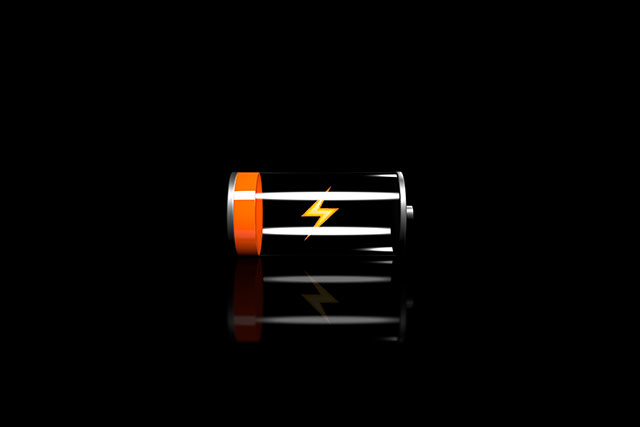
There has been a massive increase in the demand for batteries, as well as an evolution and history of the battery. This demand stems from the fact that billions of people carry electronics that consume electricity. These electronics include cell phones, laptops, and digital cameras. Batteries power our toys and gadgets by converting chemical energy into electrical energy. The opposite ends of a battery, known as the anode and the cathode, generate an electrical circuit that conducts power to an electronic device.
Once this electrical circuit is depleted, batteries should be safely disposed, but millions of batteries are tossed into the trash by consumers every year. While throwing away batteries may seem harmless, it can have dire effects on the environment. Each battery contains hazardous, toxic and corrosive materials like mercury, cadmium, lithium, and lead. If you’re wondering what adverse effects batteries can have on our environment, here are 5 facts you should know about batteries and our environment.
THE FACTS
1) IMPROPERLY DISPOSED BATTERIES CONTRIBUTE TO WATER AND AIR POLLUTION.

When depleted batteries are tossed into the trash, they end up in landfills where they decay and leak. As batteries corrode, their chemicals soak into soil and contaminate groundwater and surface water. Our ecosystems, which contain thousands of aquatic plants and animals, are compromised when filled with battery chemicals. This means that when we drink from tap water faucets, we could be ingesting dangerous metals. Did you also know that improperly disposed lithium batteries can be very unstable? Lithium batteries can cause landfill fires that can smolder for many years. As a result, the toxic chemicals released into the air negatively affect our breathing and contribute to global warming. The vaporized form of improperly exposed batteries also gets trapped in the atmosphere and pollutes lakes and streams in the form of rain.
Battery Disposal Resources:
Common Household Batteries – Proper disposal tips.
Improper Lead Battery Recycling – Tackling the problems.
2) Improperly disposed batteries negatively affect human health.

Exposing the environment to lead and strong corrosive acids found in batteries can cause burns and dangers to our eyes and skin.According to the Agency for Toxic Substance & Disease Registry, toxic metals like nickel and cadmium found in batteries are known human carcinogens. Carcinogens are any substance, radiation, or radionuclide that acts as an agent that causes cancer. When these agents interact with our air and water, we risk developing cancerous disabilities. Another toxic metal that can be found in batteries is lead, which has been linked to severe medical issues like developmental & neurological damage and congenital disabilities. I 1996, the government introduced legislation that banned Mercury from use in batteries because of its highly toxic nature, especially in vapor form. Due to this new law, people can now use smaller batteries, such as single-use alkaline batteries, without fear of Mercury poisoning.
Health Resources:
Health Concerns with Batteries – Your health and battery disposal.
Lead-acid Batteries & Cancer – Your health and battery disposal.
3) Recycling batteries is easy.

Programs like Call2Recycle willingly take your batteries and recycle them on your behalf as an act of public service. Disposing of car batteries, which are typically composed of lead acid materials, can be as simple as taking it down to an automotive store and dropping it off. Even cell phone carriers and manufacturers allow you to mail your phone away to be properly recycled. Did you know that before the 1996 ban on mercury use in single-use alkaline batteries, proper recycling procedures were mandatory.
Battery Recycling Resources:
Where to Recycle Batteries – Battery recycling locator help!
Recycling Batteries – Interesting facts about recycling and not recycling batteries.
Battery Recycling Facts – What you didn’t know.
How To Recycle Batteries – The recycling process
Recycling Single Use Batteries – Why you should.
Recycling Batteries in North America – How you can recycle your batteries today.
Recycling Batteries in the United Kingdom – Where you can recycle your batteries.
4) Rechargeable batteries consume less natural resources.

Did you know that rechargeable batteries consume less nonrenewable natural resources overall than disposable batteries? One huge positive of using rechargeable batteries is that due to their ability to recharge, fewer batteries are needed to provide the same amount of energy. This translates to fewer resources being consumed during the manufacturing process. Another benefit of using rechargeable batteries over disposable batteries is the cost savings. Rechargeable batteries save the consumer money due to its reusability.
Rechargeable Battery Resources:
Rechargeable Batteries – Facts, myths and explosions.
Battery Guide – Pros and cons of rechargeable batteries.
Batteries & Devices – Best uses with rechargeable devices.
Battery Myths vs Battery Facts – What you should know about responsible renewable energy.
As the demand for batteries grow, improper disposal continues to negatively affect the environment and human health. If you want to live in a cleaner, healthier world for generations to come, recycle your used batteries.
